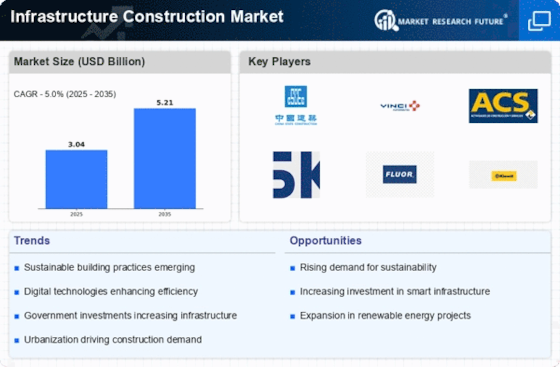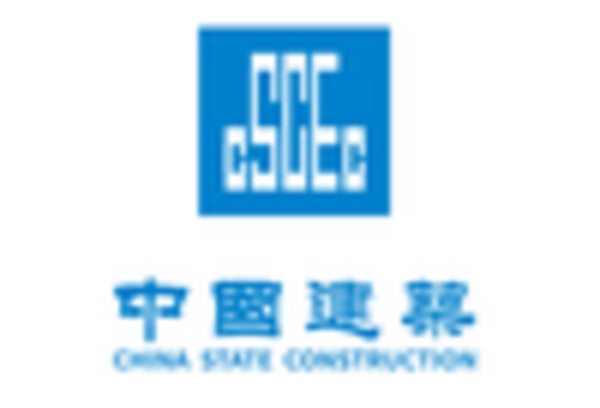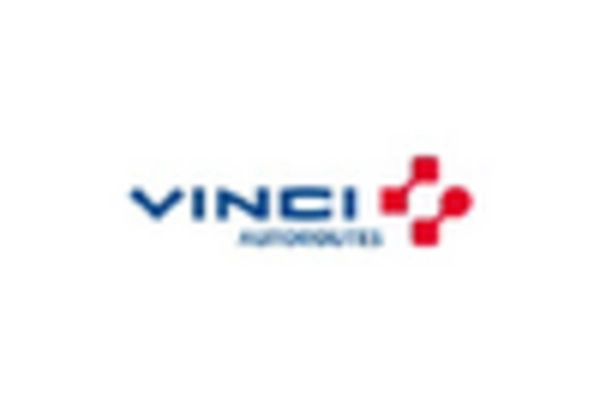Market Trends
Key Emerging Trends in the Infrastructure Construction Market
The market trends in infrastructure construction are experiencing significant shifts driven by factors such as technological advancements, sustainability considerations, and the evolving needs of urbanization. One notable trend in this market is the increasing integration of advanced technologies in infrastructure projects. Building Information Modeling (BIM), drones, artificial intelligence, and smart sensors are becoming integral tools in the planning, design, and construction phases. These technologies enhance project efficiency, reduce costs, and improve overall infrastructure performance, marking a shift towards more innovative and data-driven construction practices.
Moreover, sustainability is a key influencer in the infrastructure construction market. With a heightened awareness of environmental concerns, there is a growing emphasis on green and sustainable infrastructure solutions. Projects are increasingly incorporating eco-friendly materials, energy-efficient designs, and renewable energy sources, aligning with global efforts to reduce the environmental impact of construction activities. This trend reflects the industry's commitment to creating resilient and environmentally responsible infrastructure for future generations.
Customization is emerging as another significant trend in the infrastructure construction market. Different regions and projects have unique requirements based on factors such as climate, geography, and demographic needs. Infrastructure developers and construction companies are adapting their approaches to provide tailor-made solutions that address the specific challenges and demands of each project. This trend allows for more effective and resilient infrastructure development, catering to the diverse needs of urban and rural communities.
Technological advancements in construction materials and methods are playing a pivotal role in reshaping the infrastructure construction market. Innovations such as 3D-printed structures, self-healing concrete, and advanced composite materials contribute to the durability, efficiency, and sustainability of infrastructure projects. These advancements also contribute to faster construction timelines and reduced environmental impact, marking a shift towards more resilient and technologically advanced infrastructure solutions.
Furthermore, the market is witnessing a surge in public-private partnerships (PPPs) and alternative project delivery methods. Governments and private entities are collaborating to fund and execute infrastructure projects, leveraging the strengths of both sectors. This trend allows for increased project efficiency, risk sharing, and accelerated infrastructure development, addressing the growing demand for critical infrastructure improvements.
In terms of market dynamics, competition in the infrastructure construction industry is intensifying. Companies are investing in technology, sustainability initiatives, and collaboration efforts to gain a competitive edge. Meeting regulatory standards, addressing environmental and social concerns, and ensuring the resilience of infrastructure projects are critical factors for success in this competitive market. The sector also faces challenges related to funding constraints, geopolitical factors, and the need for skilled labor in an evolving construction landscape.
Challenges in the infrastructure construction market include the need for increased investment in aging infrastructure, addressing the urban-rural infrastructure divide, and navigating regulatory complexities. Additionally, the industry must adapt to changing societal needs, such as the demand for smart cities, efficient transportation systems, and resilient infrastructure capable of withstanding natural disasters.


















Leave a Comment